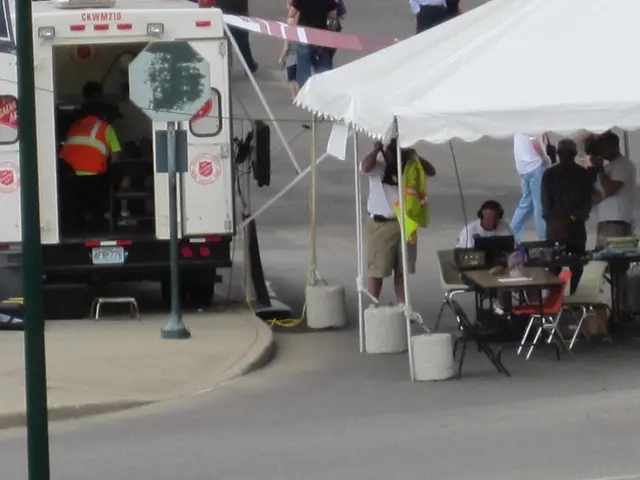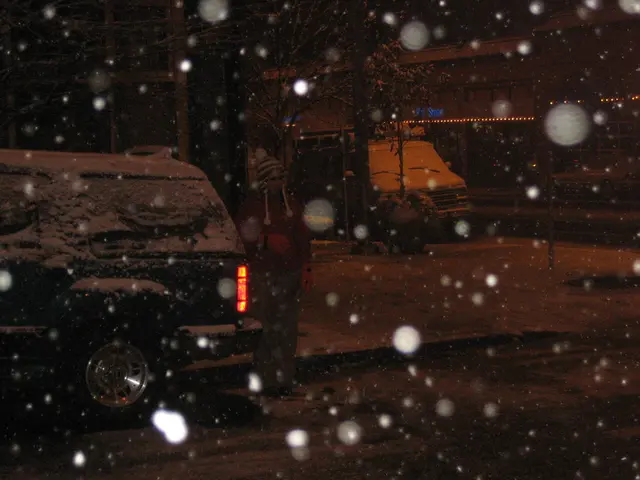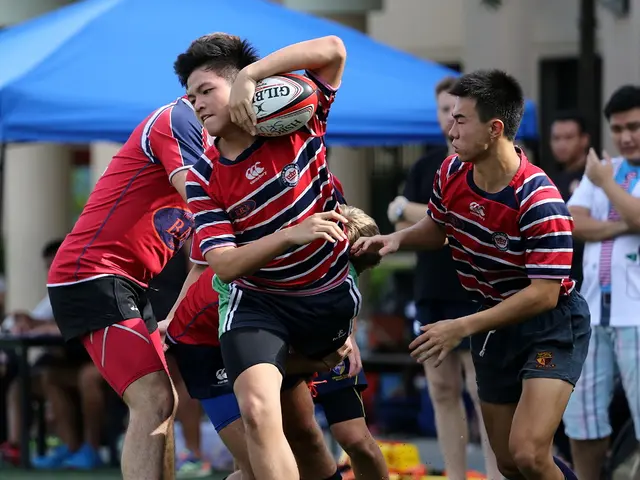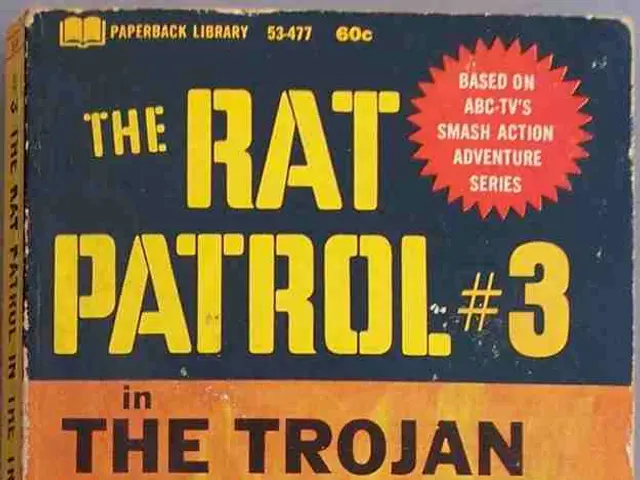Roberto Saviano: Living a Caged Life in Fear
Roberto Saviano finds himself in a confined living situation.
In an candid interview with Italian newspaper "Corriere della Sera," author Roberto Saviano, best known for his book "Gomorrah" about the Neapolitan mafia, candidly admits to contemplating suicide multiple times due to the constant danger and solitude that his life under police protection has brought.
Saviano, 44, is a native Neapolitan and made international headlines in 2006 with his gripping reportage on the Camorra, the Neapolitan mafia. This bold expose not only earned him worldwide recognition, but also put a target on his back. His nemesis, Camorra boss Francesco Bidognetti, famously known as Cicciotto di Mezzanotte, and his lawyer, made it clear that Saviano would be dead within five years when he was just 26. Since then, he has lived under protection for two decades, a reality that only those who experience it can truly understand.
Living Under Protection: A Burden of Guilt and Isolation
In the interview, Saviano discusses the guilt he feels towards his family, especially concerning the funeral of his late aunt who meant a great deal to him. He recalls, "My parents once lived in Caserta (not far from Naples, note of the ed.). They had to move to northern Italy as early as 2006. All because of me. But they never settled there."
Besides the Camorristi who wish him dead, there are also ordinary Neapolitans who cannot forgive Saviano for painting the city in such a bleak light with "Gomorrah." Although his book also contributed to drawing attention to these criminal activities and ultimately brought about positive changes, the focus is rarely on that. Neapolitan neighborhoods now see some residents moving around safely, thanks to Saviano's bravery. Yet, the author belongs to those intellectuals who have been co-opted by politics. Both the left and the right side of the political spectrum carry him on their shoulders, while national-populist Deputy Prime Minister Matteo Salvini, Infrastructure Minister, would love to withdraw his police protection.
Saviano references Indian-British writer Salman Rushdie, with whom he has been friends for years. His book "The Satanic Verses" earned him a fatwa, making him a target for Muslims worldwide. A multimillion-dollar bounty has been placed on his head. Rushdie received police protection and lived in hiding for many years. At some point, he decided to defy the danger and live freely and normally again. However, in the summer of 2022, he was severely injured in a stabbing attack, losing an eye. "The irony is that Rushdie now feels relieved," Saviano points out. "No one can claim that the fatwa was just a spectacle anymore."
The Life of a Captive Writer
Living under protection means constantly dealing with criticisms that his danger and quest for attention are exaggerated. Simultaneously, he is always questioning how to free himself from this captivity. The fear and isolation that come with this lifestyle take a heavy toll on Saviano, as exemplified by his statement, "I once took a selfie with Philip Roth and he said to me: 'I'd never be jealous of a shitty life like yours.'" He acknowledges that he wishes for a better life and is still trying to find the answer to whether his life has been wasted.
When asked if he suffers from panic attacks, Saviano responds, "Constantly. I couldn't endure it without medication. Five o'clock in the morning is the worst time of the day. You're not breathing. You ask yourself: And now? Where do I go? I'm crushed by two burdens. One, because I'm risking my life, the other, because I'm still alive."
Loneliness also plays a significant role in Saviano's life. During the Easter holidays, relatives and friends kept him company until 7 p.m. Then they left, leaving him at home alone. Both friendships and romantic relationships are affected by his restricted mobility, as the freedom love demands seems unattainable to him.
- Italy
- Mafia
- Italian Mafia
Enrichment Data:Roberto Saviano, the author of "Gomorrah," has faced significant personal risks and challenges due to his exposé on the Neapolitan mafia, particularly the Camorra. Since his book’s publication, he has been under constant police protection, which has dramatically altered his life. While the specific details of how he copes with loneliness and danger are not extensively documented, it’s known that living under protection imposes strict limitations on one’s freedom and normalcy.
Saviano’s situation involves a life of isolation and constant vigilance, as he is targeted by the very organizations he exposed. He has been forced to live in hiding and has had to limit his interactions with family and friends. Despite these challenges, Saviano has continued to speak out against organized crime, using his platform to raise awareness about the pervasive influence of the Camorra and other criminal groups in Italy[1][2].
Coping with loneliness and danger while under protection likely involves maintaining a strong sense of purpose and finding ways to stay mentally and emotionally resilient. Many individuals in similar situations rely on their work or cause to sustain them, alongside any support they may receive from authorities and allies[3].
While specific personal coping mechanisms used by Roberto Saviano are not detailed in the available information, his continued advocacy and writing suggest that he remains committed to his cause despite the isolation and risks involved.
- Roberto Saviano, who lives under police protection due to his exposé on the Italian Mafia, expresses his guilt towards his family, particularly about moving away from their native Naples due to the danger he brought upon himself.
- In his interview, Saviano compares his life to that of Indian-British writer Salman Rushdie, who also faced a fatwa and lived in hiding, noting the irony in Rushdie feeling relieved as it debunks the notion that the fatwa was just a spectacle.
- Living under protection has resulted in Saviano dealing with constant criticism about his danger and quest for attention being exaggerated, and constant fear and isolation, as he acknowledges that he feels like his life is being wasted and experiences panic attacks.
- The lifestyle of being in constant danger and living under protection has significantly affected Saviano's relationships, including friendships and romantic relationships, due to the limitations it imposes on personal freedom.







